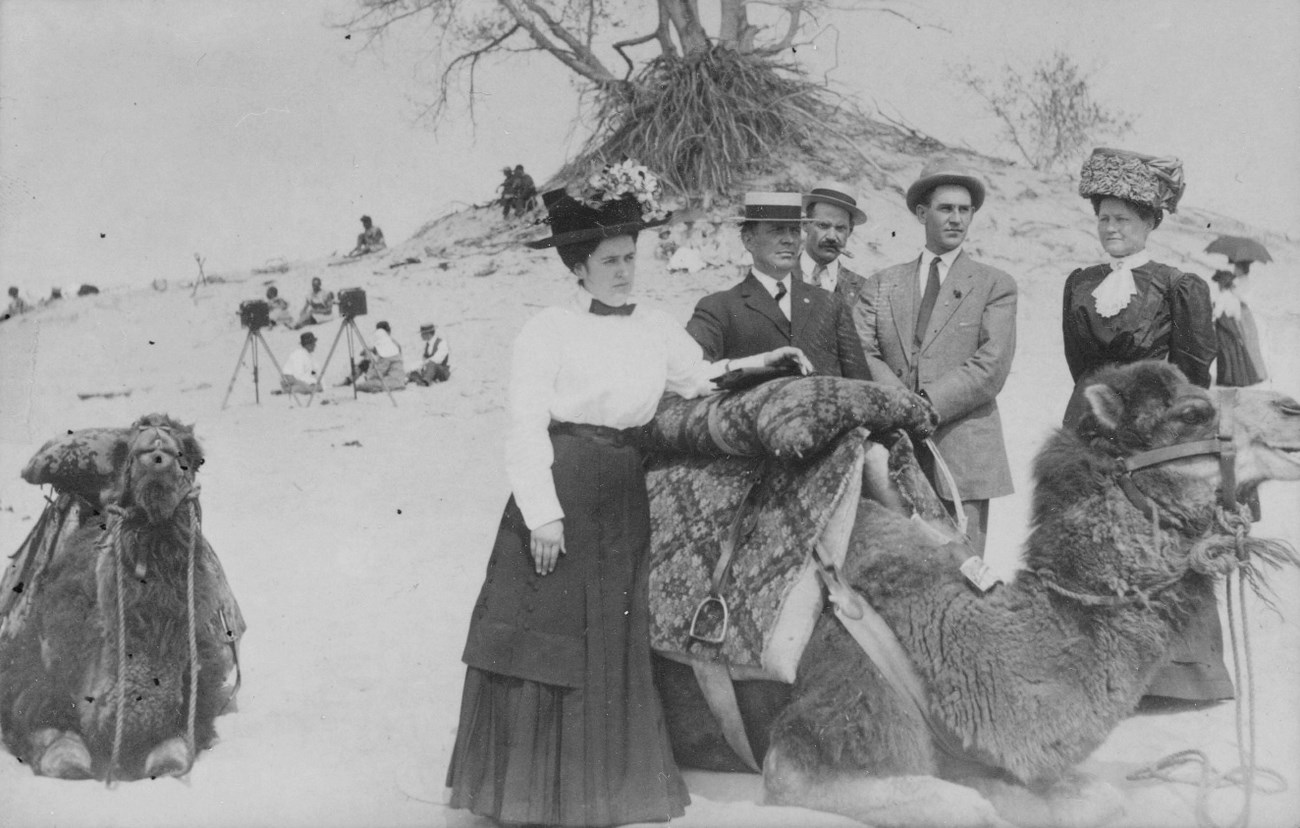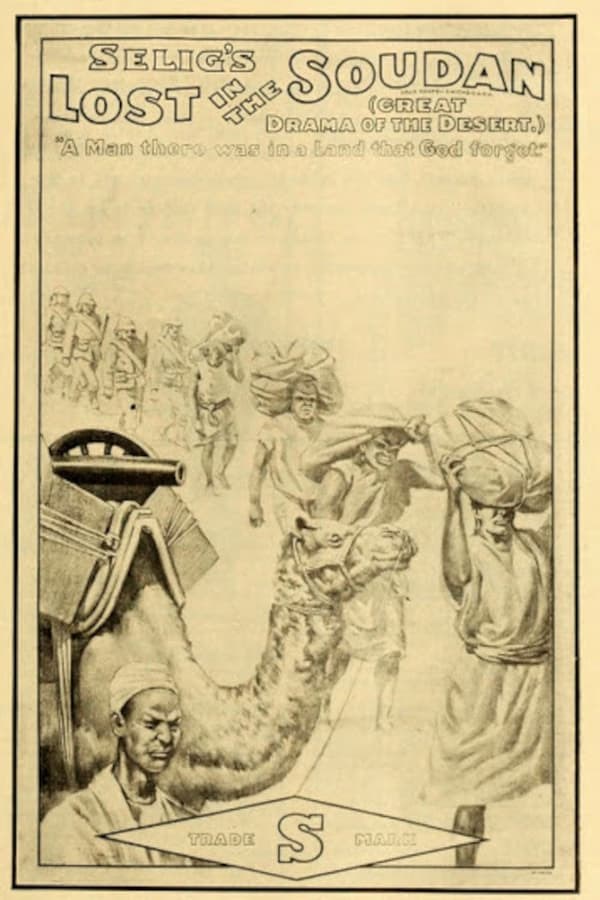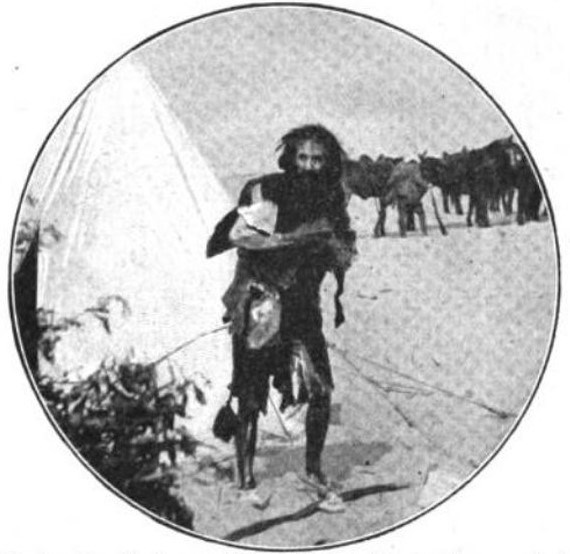Last updated: October 21, 2024
Article
Getting Lost and Found at Indiana Dunes

Westchester Historical Society

Steve Spicer
After filming a scene, Bill had run out of water and decided to rest beneath a “scrub” oak tree. He fell asleep and to his surprise, he awoke completely alone in the sand hills. Still donning his costume of tattered clothes, a leopard skin shall and a heavy club, Bill called out only to hear the echo of his own voice. He wandered the dunes for a few hours before inadvertently arriving back to his napping spot. Utterly warn out, he wrapped himself in an old blanket and lied down to sleep. “But his slumbers were frequently interrupted by swarms of mosquitoes and other insects, that stung him unmercifully.”
The next morning, a local trapper stumbled across the lost actor while roaming the sand hills. In preparation of his role, Bill had long, ragged hair and an untrimmed beard. The trapper was startled to see the “unkempt, half-naked, wild-eyed man” who was stumbling in the sand, carrying a club and “moaning inarticulately.”

Joseph Gruzalski
“’Water! Water!’ moaned Bill in a pitiful voice. ‘For Heaven’s sake, man, give me a drink!’ This was said in such a sepulchral tone that the posse then and there concluded that Mong, if he was not wild, was certainly insane. As it happened, they had no water with them.” An improvised stretcher was rigged up and four of the men started to carry Bill Mong to a well, three miles distant.
"His cries along the route were heartrending, for he was suffering not only from thirst, but from the poison of insect-stings.” After about a mile, they came across the motion picture crew looking for the lost actor. Within a few minutes, they convinced the "astonished countrymen" that Bill was no "wild man," but had just been lost.
As Bill rested on the train back to Chicago, he said:
“No more ‘wild man’ roles in the desert for me! Now I know what it is really like to be lost in the desert! I smiled when I went through all the mimic scenes, but I never thought I should taste the real thing. The horror of it all is indescribable. The trappers treated me well, but I’m afraid I scared them pretty badly. You see, I still had my make-up on, and they can’t be blamed for believing me to be a wild man. Only the local hunters and fishermen ever stray into that horrible desert alone, and to see a stranger garbed like me was enough to frighten them. That little experience of mine from sunset to sunset will last me a lifetime.”
The content for this article was gathered and written by Joseph Gruzalski, a researcher with Indiana Dunes National Park.
